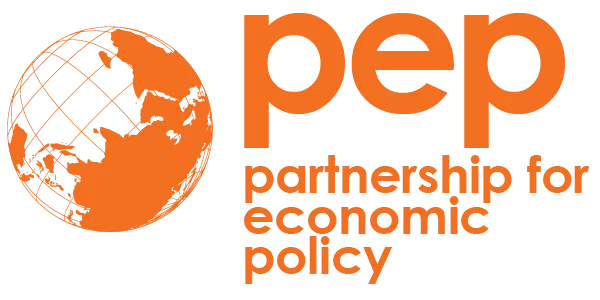PEP Online Training Program: Applied Development Economics
Closing date : November 30, 2017
PEP is offering three online distance-learning courses in Applied Development Economics, in collaboration with Université Laval in Canada, from January to March, 2018.
In collaboration with Université Laval in Canada, the Partnership for Economic Policy (PEP) is offering three online distance-learning courses from January 9, 2018 to March 30, 2018. The three courses are:
Course 1: Policy Impact Analysis
Course 2: Computable General Equilibrium Modelling
Course 3: Measuring and Alleviating Poverty and Inequality
On successful completion of each course, Université Laval will provide students with a certificate of completion. Université Laval will award a graduate microprogram diploma to students who complete all three courses within a maximum of three years. Courses will be offered again in January-March 2019 and, hopefully, for many years to come.
Course content
Course 1: Policy Impact Analysis (Maria-Adelaida Lopera)
Policy impact analysis is used to determine which policies, interventions and programs work, for whom, and in what circumstances. This course provides practical guidelines for designing and implementing various types of experimental and non-experimental techniques, including how to select the appropriate technique for each context. This course takes an applied, non-technical approach. Participants should have a working knowledge of basic statistics, particularly key concepts such as regression analysis.
Course 2: Computable General Equilibrium Modelling (Véronique Robichaud)
Computable general equilibrium models are powerful analytical tools used widely in both developing and developed countries. This course introduces all aspects of this type of modeling, both theoretical and applied. At the end of this course, participants will be able to develop, program and use a computable general equilibrium model.
Course 3: Measuring and Alleviating Poverty and Inequality (Luca Tiberti/Abdelkrim Araar)
Poverty and Inequality reduction is a central objective of economic policies in both developed and developing countries. This course introduces the main theoretical and empirical aspects of the economic analysis of poverty and inequality: distributive analysis, poverty and inequality measures and profiles, multidimensional poverty, robustness, pro-poor growth and policies, poverty alleviation, targeting criteria and the distributive effects of price changes and tax reforms. Each theoretical class is accompanied with practices on real data. Participants should have a working knowledge of basic statistics.
Registration
Registration for the 2018 courses must be completed by November 30, 2017. For this first session, participation will be limited to a maximum of 20 candidates per course, selected on the basis of their application form and CV. Decisions will be communicated by December 4 and selected participants will be expected to pay their course fees in full by December 11, failing which their spot can be offered to candidates on the waiting list. Instructions for payment (by bank transfer) will be provided with acceptance letters on December 4.
The course cost is:
- $US 500 per course for participants who are nationals and residents of a developing country
- $US 1000 per course for all other participants
To apply to participate in the course:
- Register on the PEP web site and post your CV in your profile
- Complete and send the application form to info@pep-net.org with the subject line “PEP online courses”
FAQ
Am I eligible to participate?
Participants must hold an undergraduate degree in economics or related fields.
What language are the courses in?
The courses will be offered in English and French.
